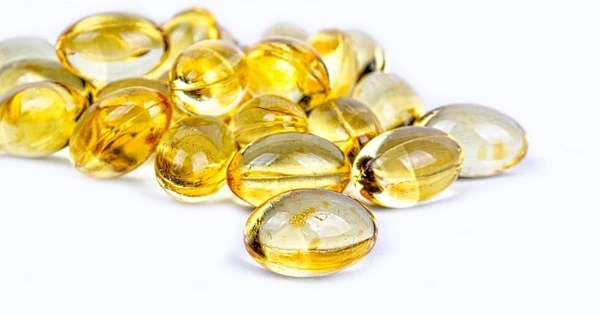Vitamin D is known as the “sunshine vitamin” because your body can produce it when exposed to sunlight. This essential, fat-soluble nutrient promotes cell growth and immune function, as well as bone health and strength. It may also play a role in depression, as many people with depression have low vitamin D levels, according to researchers.
According to a large meta-analysis, vitamin D supplementation may alleviate depressive symptoms in adults with depression. The meta-analysis, which was carried out by an international team of researchers, included dozens of studies from all over the world.
Depressive symptoms contribute significantly to the global disease burden. The therapeutic efficacy of current antidepressants is frequently insufficient, which is why additional ways to alleviate depression symptoms, such as nutritional research, have been sought.
Vitamin D is thought to regulate central nervous system functions, the disruption of which has been linked to depression. Furthermore, cross-sectional studies have found a link between depressive symptoms and vitamin D deficiency. Previous meta-analyses on the effects of vitamin D supplementation on depression, on the other hand, were inconclusive. A meta-analysis combines and statistically analyzes the findings of multiple studies.
These findings will inspire new, high-level clinical trials in depressed patients to shed more light on the potential role of vitamin D supplementation in the treatment of depression.
Tuomas Mikola
The new meta-analysis on the relationship between vitamin D supplementation and depression is the largest one published to date, incorporating findings from 41 studies from around the world. These studies used randomized placebo-controlled trials to investigate the efficacy of vitamin D in alleviating depressive symptoms in adults from various populations.
The studies included those conducted on depressed patients, the general population, and people with various physical conditions. According to the findings of the meta-analysis, vitamin D supplementation is more effective than a placebo in alleviating depressive symptoms in people suffering from depression. The vitamin D doses used varied greatly, but the typical vitamin D supplement was 50-100 micrograms per day.

Your body produces vitamin D naturally when it’s directly exposed to sunlight. You can also get vitamin D from certain foods and supplements to ensure adequate levels of the vitamin in your blood. Vitamin D has several important functions. Perhaps the most vital are regulating the absorption of calcium and phosphorus and facilitating normal immune system function. Getting enough vitamin D is important for the typical growth and development of bones and teeth, as well as improved resistance to certain diseases.
There is a link between vitamin D deficiency and people who have a BMI of 30 or higher. Obese people may need to absorb more vitamin D than people of normal weight to reach recommended nutrient levels. If your BMI is 30 or higher, consult a doctor about having your vitamin D levels tested. They can assist you in developing a strategy to boost your levels. To address a vitamin D deficiency, doctors frequently prescribe a high-dose vitamin D supplement.
“Despite the broad scope of this meta-analysis, the certainty of evidence remains low due to the heterogeneity of the populations studied and the due to risk of bias associated with a large number of studies,” Doctoral Researcher and lead author Tuomas Mikola of the Institute of Clinical Medicine at the University of Eastern Finland says. The meta-analysis is part of Mikola’s Ph.D. thesis.
Vitamin D is as important for mental health as it is for physical health. There is enough evidence to suggest that a lack of vitamin can result in depression-like symptoms. People who suffer from depression are more likely to be vitamin D deficient. Prevent this from happening by including vitamin D-rich foods in your diet and getting enough sun exposure.
“These findings will inspire new, high-level clinical trials in depressed patients to shed more light on the potential role of vitamin D supplementation in the treatment of depression,” Mikola concludes.





